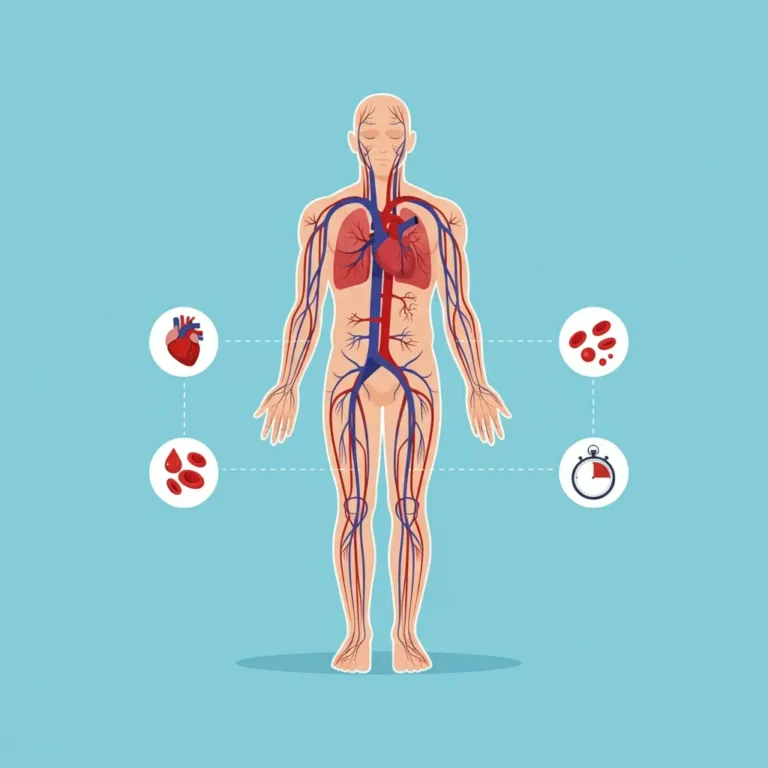How Long Does It Take to Die from Sepsis?
Table of Contents
Introduction of Sepsis
Sepsis is a critical medical emergency that can turn life-threatening quickly. It occurs as a result of an infection where the body’s response is out of proportion to the infection, causing excessive inflammation, which can lead to the failure of one or more organs. Even with the development of medicine, sepsis claims the lives of thousands of people across the globe due to a variety of factors, including not recognizing the symptoms or being able to reach medical care in a timely manner.
A key question many people ask, especially when faced with this illness, is, “How long does it take to die from sepsis?” This post attempts to provide an answer to that question, taking into consideration treatment schedules and the various determinants of results. We will also explore why sepsis can worsen rapidly, as well as how timely surgical treatment can markedly increase chances of survival.
Whether you’re looking to understand this condition better for yourself or a loved one or simply to be informed, this guide will walk you through the most critical aspects of sepsis and how time plays such a crucial role.
Understanding Sepsis and Its Impact
Sepsis isn’t just an infection. It’s a potentially deadly reaction where the body attacks its tissues and organs in response to an infection. If not treated immediately, it can lead to severe complications or death.
More than 1.7 million adults in the U.S. develop sepsis each year, making it a leading cause of hospital deaths. Although sepsis can affect anyone, vulnerable groups such as young children, the elderly, and those with weakened immune systems face the greatest risk.
The Connection Between Infection and Sepsis
Sepsis typically begins with an infection, whether from bacterial, viral, or fungal sources. Common infections that can lead to sepsis include pneumonia, urinary tract infections, and bloodstream infections like bacteremia.
Understanding that sepsis can stem from something as seemingly harmless as a minor cut-turned-infection underscores the need for early awareness and prompt action.
The Stages of Sepsis
Sepsis progresses through three main clinical stages:
- Sepsis: This is the initial stage where infection begins to trigger inflammatory responses throughout the body.
- Severe Sepsis: At this point, organ dysfunction begins. Symptoms may include difficulty breathing, mental confusion, and low blood pressure.
- Septic Shock: The most dangerous stage, septic shock, involves a significant drop in blood pressure, leading to organ failure and, without treatment, death.
The transition from one stage to the next can vary greatly, taking hours, days, or longer.
How Long Does It Take to Die from Sepsis?
The timeline from infection to death can be alarmingly short if sepsis progresses unchecked. Death can occur within a matter of hours or days, depending on multiple factors such as overall health, age, and how quickly treatment is initiated.
Accurately predicting the timeline is challenging because sepsis outcomes vary based on the severity of the infection and the individual’s response. However, early detection and medical intervention are critical to improving survivability.
How Long Does It Take to Die from Sepsis with Treatment?
When detected early and treated promptly, sepsis is often manageable. Patients receiving appropriate treatment, including antibiotics and supportive care, usually experience better outcomes.
With treatment, survival rates improve significantly, and life-threatening complications are often prevented. Even with good healthcare, the timelines for recovery can vary, with the worst cases often having life-altering outcomes.
The Importance of Timing
If the patient is given antibiotics immediately after diagnosis, especially within the first hour, survival becomes much more likely. Not providing treatment increases the chance of death by an estimated 7-10% for every hour of delay.
How Long Does It Take to Die from Sepsis without Treatment?
Without treatment, sepsis can rapidly progress from its early stages to septic shock. Individuals without access to timely healthcare or those who delay seeking treatment are at an extremely high risk of death.
For some, this process can happen in less than 48 hours. Others may survive longer, depending on the strength of their immune system and the progression of their symptoms. Untreated sepsis cases often result in a catastrophic outcome in days or even hours.
How Long Does It Take to Die from Sepsis Shock?
Septic shock, often described as the final stage of sepsis, is characterized by a life-threatening drop in blood pressure and widespread organ failure. Mortality rates during septic shock are very high, even with aggressive treatment.
For many, septic shock can lead to death within hours if medical intervention is delayed or inadequate.
How Long Does It Take to Die from Untreated Sepsis?
Untreated sepsis, especially in its severe stages, almost always leads to death. The time frame varies, but most people succumb to the condition very quickly. Organ failure, severe inflammation, and infections spreading throughout the body contribute to this outcome.
The key takeaway is clear: untreated sepsis is a medical emergency that requires immediate action.
Early Warning Signs of Sepsis
Recognizing the signs early can save lives. Symptoms include:
- Fever or very low body temperature
- Rapid heart rate
- Confusion or extreme fatigue
- Difficulty breathing
- Reduced urination
- Shivering or clamminess
Acting on these symptoms as soon as possible is essential.
Risk Factors for Severe Sepsis
Some people are more predisposed to developing severe or fatal sepsis. These include:
- Elderly adults aged 65 and above
- Infants and young children
- Patients with chronic conditions like diabetes or kidney disease
- Individuals with compromised immune systems
Knowing these risk factors can help people stay vigilant.
Prevention Strategies for Sepsis
While not all cases of sepsis are preventable, you can reduce your risk through:
- Vaccination against infections like the flu or pneumonia
- Prompt treatment of infections
- Practicing good hygiene, such as washing hands regularly
- Keeping wounds clean and covered
Awareness and prevention go a long way in reducing sepsis cases.
Frequently Asked Questions About Sepsis
What is the fastest someone can die from sepsis?
Sepsis can claim lives in just a few hours if it progresses to septic shock without intervention.
Can sepsis be cured?
While sepsis can often be managed with rapid treatment, severe cases may lead to long-term complications or death.
Who is most vulnerable to sepsis?
Young children, older adults, and individuals with compromised immunity face the highest risks.
How can I reduce the risk of sepsis?
Getting vaccinated, treating infections early, and maintaining good hygiene are simple, effective steps.
Is sepsis always fatal?
No, many people recover from sepsis, especially with early detection and treatment.








One Comment